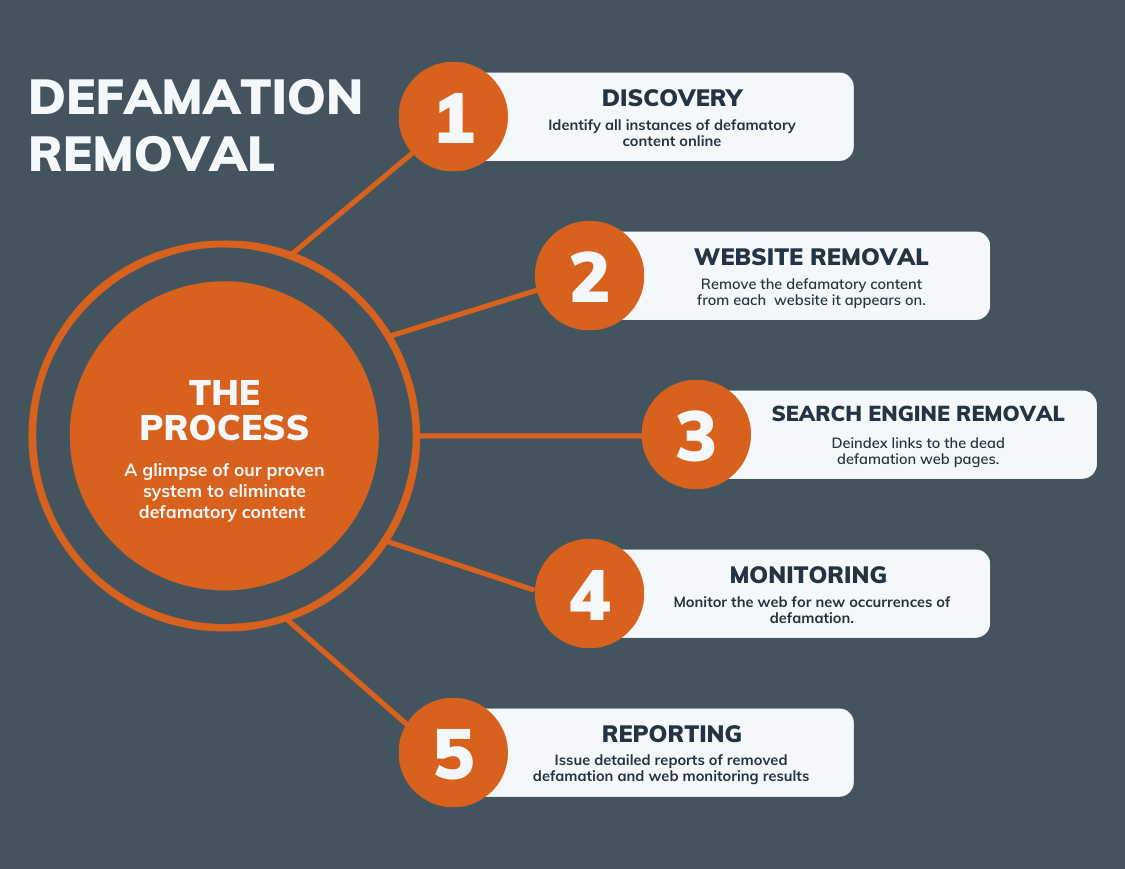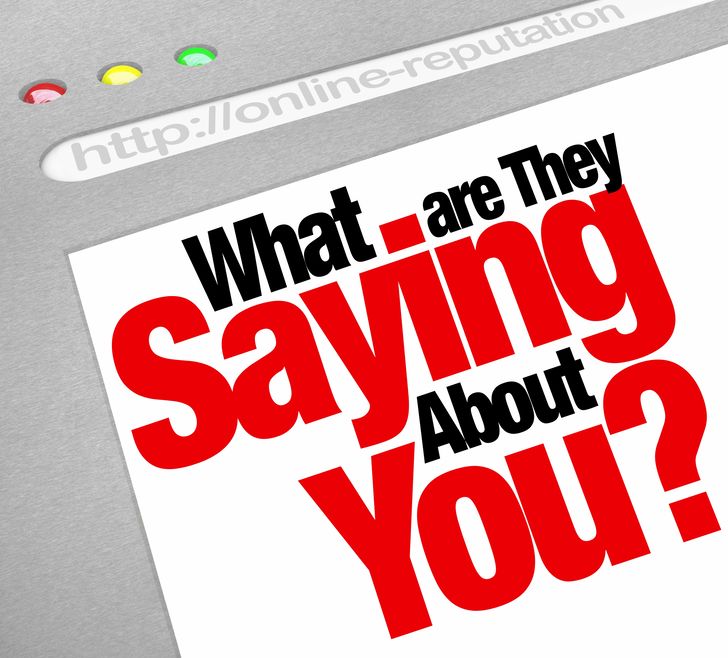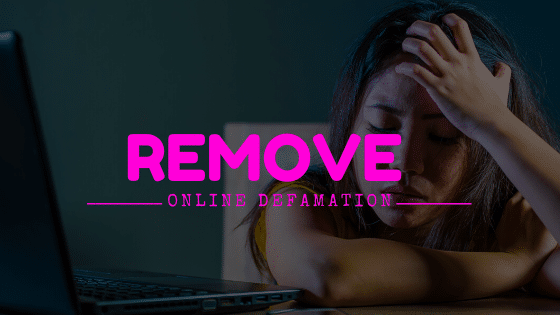Remove Defamation from the Internet
We offer proven solutions to delete defamatory content and erase slanderous internet posts from websites, and from internet search engines like Google, Yahoo, DuckDuckGo, and Bing. Our defamation removal solutions have helped over a thousand individuals and businesses remove tens of thousands of negative content links from hundreds of websites, blogs and forums.
Talk to an experienced Defamation Defender reputation removal advisor for a free consultation to have defamatory content deleted from the internet. Complete the form below to get started!

Free Expert Consultation
What is Defamation?
Any blogger or business that uses the Web should be aware of Internet defamation statutes. For the most part, acts of online libel are subject to the same laws as offline offenses. However, the structure, speed and universal availability of the Internet presents unique legal questions singular to cyber defamation litigation.
For example:
- Are bloggers considered journalists?
- Are bloggers considered public figures?
- I’m a political blogger, am I considered a public figure?
- Are corporations considered public figures for the purposes of a internet defamation lawsuit?
- If I omit names from a blog post, can I still be sued for internet defamation?
- Is it illegal to link to a defamatory statement?
- What happens if a third-party post on your website is defamatory, are you liable?
- What about paid/fake reviews, are they allowed or can they result in a defamation lawsuit?
In what follows, we'll take a look at all these questions, and others, before delving deeper into one's options for dealing with defamation online. First, however, let’s quickly review a few defamation law basics.

Basic Elements of Internet Defamation Law
While slander (spoken defamation) and libel (written defamation) statutes are nuanced, and vary from jurisdiction to jurisdiction, the basic definition of defamation reads:
defamation, n. (14c) 1. The act of harming the reputation of another by making a false statement to a third person.• If the alleged defamation involves a matter of public concern, the plaintiff is constitutionally required to prove both the statement’s falsity and the defendant’s fault. 2. A false written or oral statement that damages another’s reputation. See LIBEL; SLANDER. Cf. (Black’s Law Dictionary, Ninth Edition).
In order for a statement to be considered false, in the context of a slander or libel lawsuit, it must be provably false. To illustrate, you likely won’t get far suing someone because they called you “a sorry excuse for a human being” because morality is subjective and one person’s “sorry excuse” could be another person’s “hero.” Now, if someone said you “stole money to finance your start-up” – and you didn’t – there’s a good chance you’d emerge victorious in a defamation lawsuit.
Internet Defamation FAQ
Tips to Remove Internet Slander and Defamatory Contnet Online
The Internet provides hostile people with hundreds, if not thousands, of opportunities to mount attacks against those they feel are wrong. A typical rant might sound much like this entry from PissedConsumer.com:
"Both are cheaters, fraud person, robbers and have fraud family in UK."
Spelling and excellent grammar don't matter when the user has a tale of woe to share and a platform upon which to share it. Comments like this might rightfully be considered slanderous, but fighting back against slander posted online can be difficult, if not impossible.
Most experts define slander as a comment that can be proven false and that does damage in some way. The comment outlined above might be considered slander upon first glance, for example, if the targets of the rant were never convicted of theft. They aren't "robbers," by this yardstick, and this comment could be slanderous if the targets could prove that the comments had harmed them in some way. Unfortunately, proving that a comment is false can be exceedingly difficult. The writer can claim that the statements were made in self-defense, as one blogger puts it, or that the writer was just performing a duty to inform others. The cases could drag on for months as lawyers parse out the semantics and meaning of each statement in the rant.
Additionally, just finding the writer of the rant can be difficult. Writers can post their comments anonymously, and while the courts have determined that sites should provide the name of anonymous posters when they're asked to do so, some sites don't gather enough information from their users to comply with this rule. They may not know the real names of their users or their true email addresses. Anyone with a free email account and access to a Wi-Fi spot can quickly stay anonymous, meaning that the victim will have no person to sue.
In the past, companies have attempted to sue the web companies that host the dangerous comments, but these cases tend to fail before they end up in a court of law. Section 230 of the Communications Decency Act specifies that a company that hosts web comments isn't responsible for those comments, as long as the said company doesn't edit the comments in a meaningful way. Heading back to the original example, if PissedConsumer.com had edited the poster's comments for clarity, perhaps a person could sue that company for slander. But just hosting free-form comments is a protected activity, whether it's slanderous or not.
Are Bloggers Considered Journalists?
It’s an oft-asked question: are bloggers considered journalists? The answer: Yes, bloggers are legally considered journalists. The United States Supreme Court has said that “in the context of defamation law, the rights of the institutional media are no greater and no less than those enjoyed by other individuals and organizations engaged in the same activities.”
But don’t fool yourself into thinking that the First Amendment will protect everything you publish because you’re legally considered a reporter. In fact, it means that you should probably engage in rigorous journalistic ethics and quadruple check everything for accuracy before posting. Ensure you have cited sources and be careful how you word things. Because remember, the same well-funded, in-house legal teams going after mega-media outlets are the same ones going after bloggers.
Are Bloggers Considered Public Figures?
United States defamation law differentiates between public and private figures. Public figures must meet the actual malice standard while private citizens only have to prove negligence. In addition to burden of proof standards, some jurisdictions consider a person’s status in their retraction rules. Some states don’t allow public figure plaintiffs from collecting punitive damages if they fail to seek a retraction first.
An additional note about retractions: in most instances, a retraction must be as conspicuous as the original statement to satisfy applicable laws.
I’m A Blogger Who Focuses on Local Government. Am I Considered A Public Figure Since I Willingly Inject Myself Into Matters Of Public Interest?
If you blog about politics – either local or national – take some time to look into the state laws that define what constitutes a public figure in your area. In some jurisdictions, anybody who willingly enters in a public discourse about a matter of government or public interest can be considered a limited-purpose public figure. Some states, though, have laws that protect citizens who choose to comment on public proceedings. For example, in California, you can make “a fair and true report in, or a communication to, a public journal, of (A) a judicial, (B) legislative, or (C) other public official proceeding, or (D) of anything said in the course thereof, or (E) of a verified charge or complaint made by any person to a public official, upon which complaint a warrant has been issued.”
Are Corporations Considered Public Figures in Defamation Lawsuits?
While the facts of a given case will determine whether or not a company will be viewed as a public figure or private entity, for the purposes of a slander or libel lawsuit, the general rule of thumb is that corporations are people and held to the same standards as individuals.
If I Start Every Sentence With ‘IMO,’ Can It Be Viewed As Defamatory? What If I Don’t Use Names?
Even if you omit names from your article, if the target of your scorn can be reasonably inferred from surrounding content, it may be ruled defamatory, despite the opinion indicator or the fact that you didn’t use names. Judges aren’t easily fooled by well-worded, obvious, “CYB” statements. The “reasonable person” test is vigorously applied in defamation suits; so if a reasonable person could “see through” the attempts at turning defamation into opinion, than you still may end up on the hook.
Is It Illegal To Link To Defamatory Content?
Yes, according to United States legal precedence, you can be held liable for linking to defamatory content posted on another website — especially if the surrounding context discusses the material. While there are ways to defend against internet defamation claims that involve hyperlinks if you want to play it safe, avoid linking to website content that may be defamatory. As a rule of thumb, the more salacious/outrageous the material, the higher the probability that it is defamatory.
What Happens If Someone Posts Something Defamatory On My Site? Can I Be Held Responsible?
User generated content is now the norm. You can comment on most sites and social media is based on member interactions. As such, if you run a site, there’s a good chance someone may post something defamatory on your pages. If it happens, don’t panic. You may not be held responsible.
-
- If you were not aware of the statement, Section 230 of the Communications Decency Act says you are not responsible for the statement.
- If you promote or up-status a defamatory post on your website (i.e., take a comment on a thread and turn it into its own highlighted blog post) you may be held liable if the information in the promoted material is defamatory. Why? Because you’re essentially writing your own article. Now, if the promoted material is on a forum and not a blog, a judge may rule differently due to the topic-specific nature of forum threads.
Is it defamatory to post a negative online review of a product or service? What if it’s a phony review?
Simply stated, it is not OK to post fake product or service reviews on the Web. Yes, it’s possible to purchase thousands of phony reviews for very little money on sites like Fiverr, but if your site is successful enough to catch the attention of the FTC, there’s a significant chance they’ll open an investigation and slap you with a healthy fine. Not only could you be brought up on defamation charges, but on Lanham act violations as well, which renders illegal any action that “misrepresents the nature, characteristics, or qualities of his or her or another person’s goods, services or commercial activities.”

Defamation Removal Reviews
To see what Defamation Defenders customers have to say about our proven services to remove negative and false accusations from the internet browse the reviews below.
Buddika R
The service was very helpful and I would really recommend it to anyone else. It has helped me maintain my name online and escape from cyber bully.
Tim R
John Wester
it is a great service, I suggest to everyone to use this service.thanks for this service
Toni P.
A very good business that offers the personal reputation management services that actually work. Great solution to clean personal information off the internet and scrub your reputation if you are unfairly included in a negative article or defamatory posting online.


